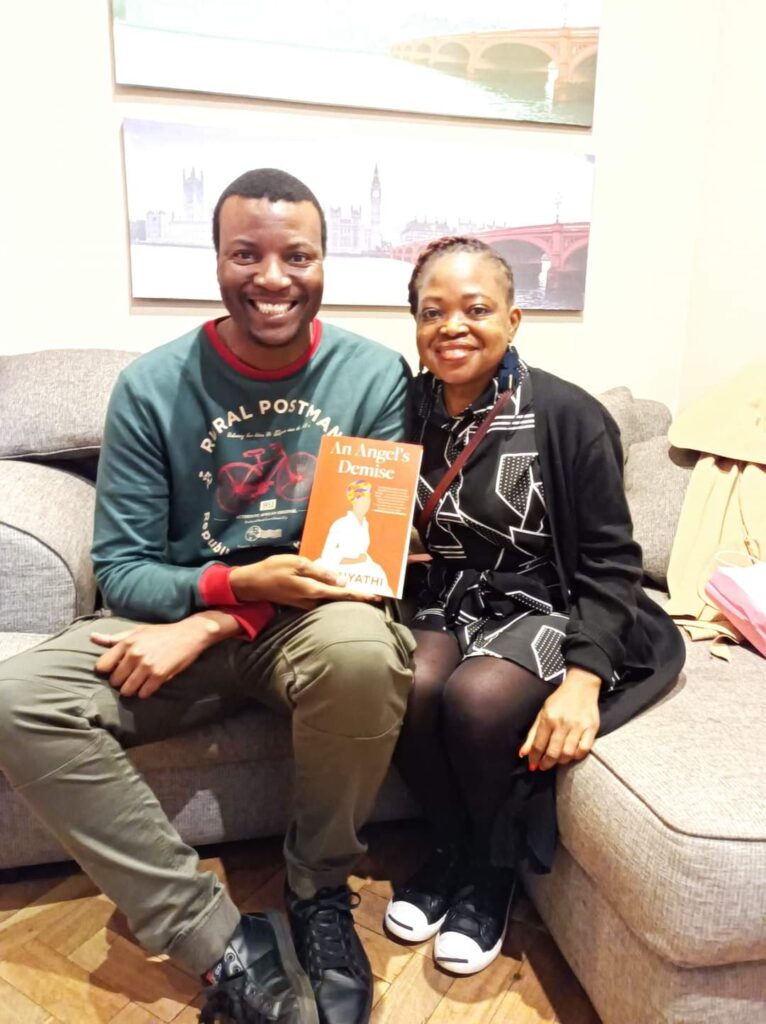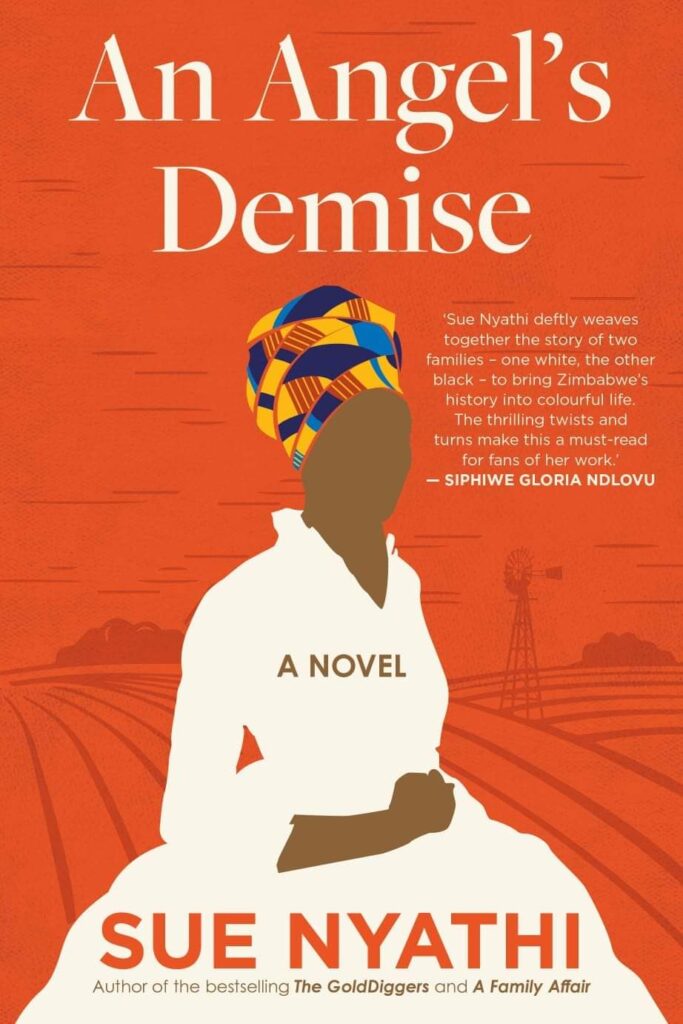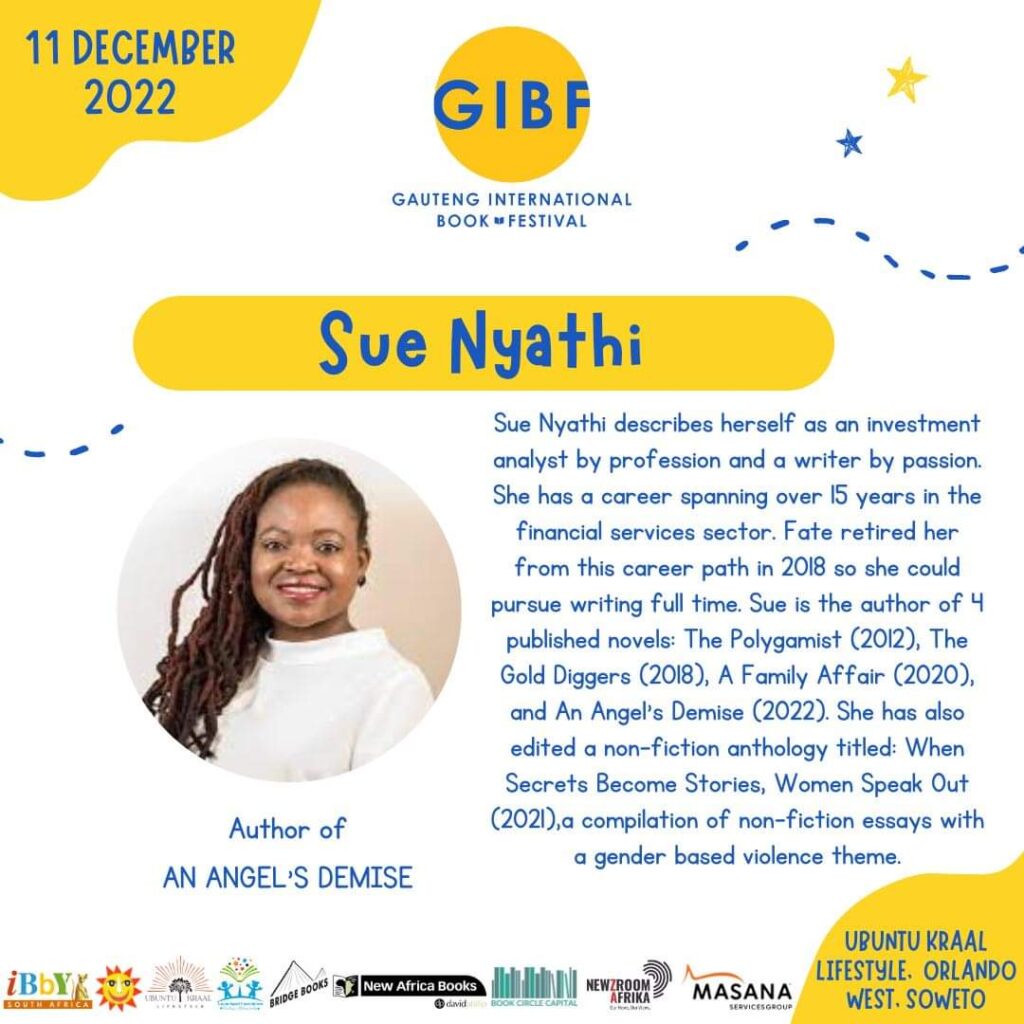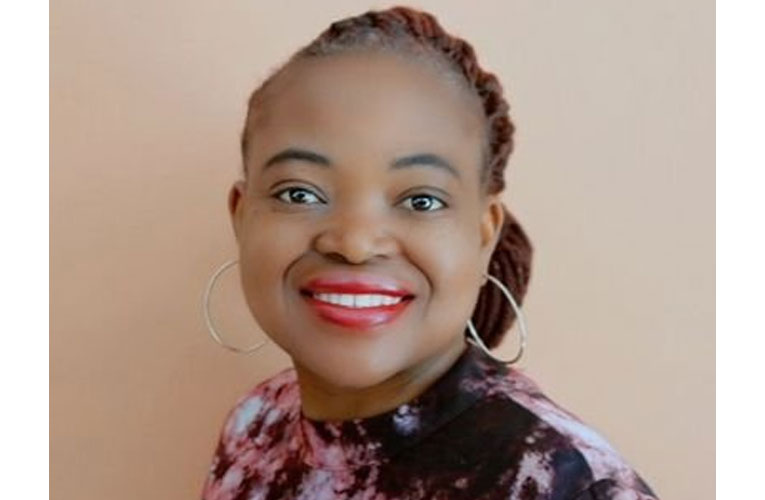Up close and personal with novelist Sue Nyathi about her latest novel- An Angel’s Demise
By Rolland Simpi Motaung
Senegalese scholar and anthropologist, Cheikh Anta Diop hit the nail on the head when he said “Intellectuals ought to study the past not for the pleasure they find in so doing, but to derive lessons from it”. In this well-researched latest novel-Angel’s Demise, Sue Nyathi pages through Zimbabwe’s political history to ask what lessons have been drawn to inform a better reflection toward healing. This latest offering joins a list of other potent novels such as Glory by NoViolet Bulawayo and The Quality of Mercy by Simphiwe Gloria Ndlovu also released this year.

These significant novels are paralleled epic historical fiction depicting Zimbabwe’s political experience towards liberation along with how a nation finds healing within the post-independence context. Such texts are testaments that the interrogation of history is not only for intellectuals, political analysts, historians and academics, but that creatives such as writers are also able to dig deeper into the closets of yesteryears.
Anchored in themes of family dynamics, land restoration, spirituality, decolonization and trauma, An Angel’s Demise follows the story of Angel who, in the 1970s, was born on a farm in Somabhula run by the Williams family. With both parents joining the liberation struggle, Angel grows up in the care of her grandmothers who have been working for the Williams family for generations. In a journey of self-discovery stretching three decades, we follow Angel’s quest for identity, love and independence.
A writer by passion, Sue Nyathi has made readers laugh, love, learn and lament through her relatable novels including The Polygamist (2012), The Gold Diggers (2018) and Family Affair (2020). I caught up with this former investment analyst to tell us more about her latest novel.
RSM: Depending on which side of the border you are, history can be celebrated or hidden, why was it important for you as a writer to pen a historical novel now in 2022?
SN: I think it was waking up to the realization that the genesis of current problems is rooted in the past. It’s also understanding that a lot of us don’t really have a handle on our history because it is filled with distortions and glaring omissions. This is not to say my book presents the correct version however we need to encourage divergent narratives in telling our history.
RSM: In dealing with themes deriving from Zimbabwe’s historical events, how far was the poetic license stretched to find the balance between factual events and fiction in approaching this book?
SN: I did stretch the poetic license otherwise what would have been the point? I could have just written a nonfiction narrative on the history of Zimbabwe from 1977. Finding the balance was difficult and in that, in some instances, I was overzealous in wanting to tell the history and the fact at times overwhelmed the fiction. However thanks to my expert editor, Jane Bowman who trimmed a lot of the fat from the manuscript until we achieved a healthy balance between the factual events and the fiction.

RSM: As a black African female writer, how did achieve writing in a white male voice? How did you restrain yourself from getting angry for instance at the racism and superior complexity exhibited by white male characters such as Paul Williams and his friends?
SN: So when I write I try and immerse myself in the character. It’s almost like acting. I don’t become angry at Paul, I become Paul and Paul is me. So I assume the persona of a white racist male with a superiority complex. I know white male characters like Paul because I have lived amongst them, I have encountered them, worked with them. Paul is a summation of many interactions with white males.
RSM: The idea of African spirituality is quite evident throughout the book with characters maBusi and Khiwa being guardian angels to Angel’s character. As a writer why was that important to show in the book?
SN: I don’t want to confine that element to African spirituality because spirituality is a universal concept and depending on your belief system, you will infer different things about Mabusi and Khiwa’s presence in the book. For me as a writer, it was important because in the context of the book, women remain powerless in the face of patriarchy however they could be powerful in the spirit realm where those distinctions don’t exist. I have always been accused of being a morbid writer, killing off characters but the afterlife is also a way to preserve those characters and its present continuity so it gave another dimension to my writing.
Learning from history allows us to not only learn about a country’s complexities and heritage but also solidifies our identity about ourselves as a people. Nyathi certainly reminds us of the journey we have travelled as Africans in attempting to find collective healing from a brutal past. Surely for our parents’ and grandparents’ generation, the scars from wars of liberation still throb. However, as the voices of a new generation of authors such as Nyathi continue to poke at decisions made by our political forebears; we hope the lessons drawn help future leaders to avoid a repetition of similar errors.
Under the section Narrating Stories of Liberation catch Sue Nyathi along with an array of powerful female writers such as Barbara Masekela and Joanne Joseph in discussion with Dr Danyela Demir at the first Gauteng International Book Festival #GIBF this coming Sunday 11th December 2022 at Ubuntu Kraal Lifestyle, Orlando West, Soweto.











